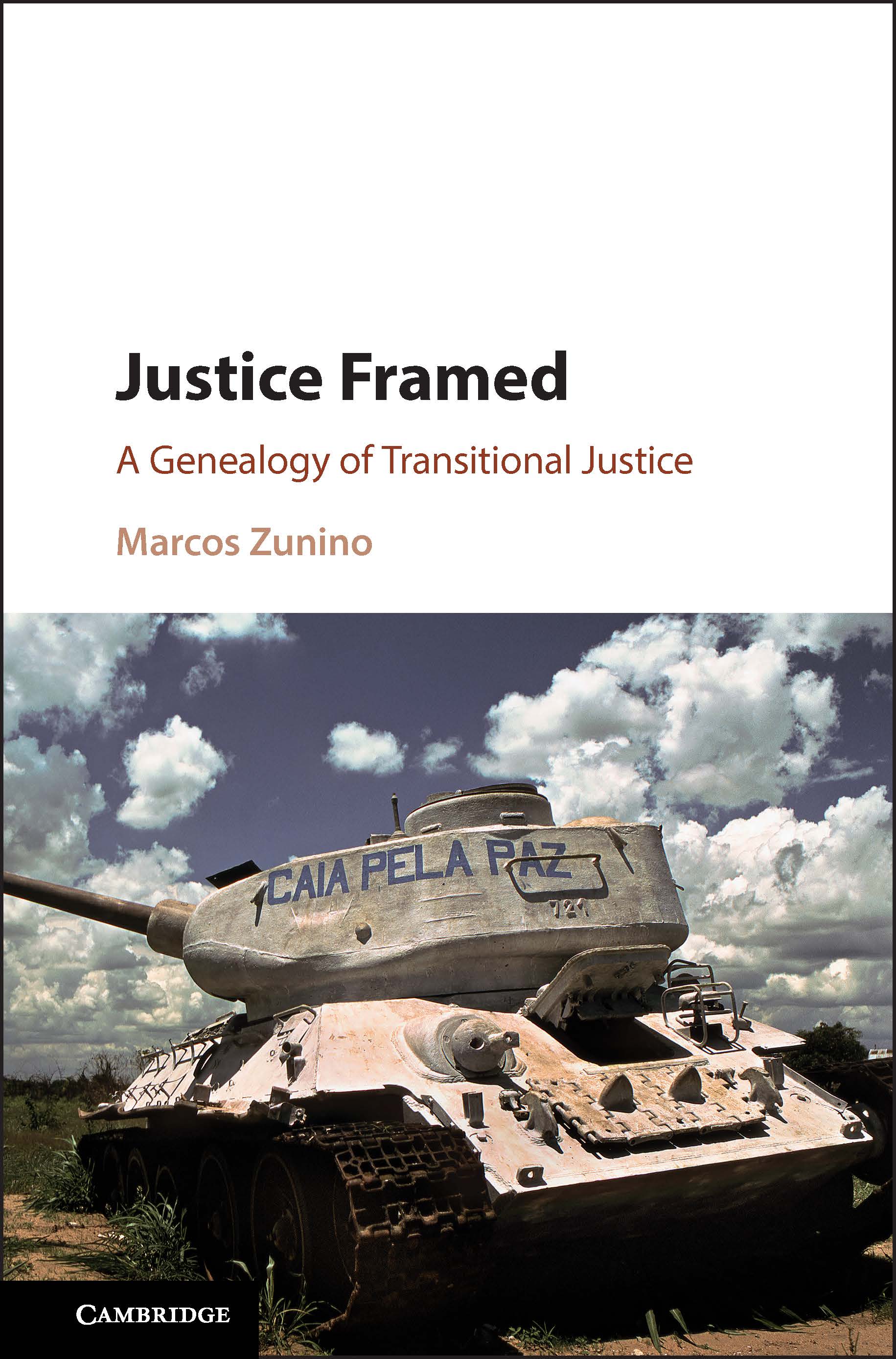Transitional Justice in Historical Perspective: Book Launch of ‘Justice framed: A Genealogy of Transitional Justice’
Speaker(s):
Series:
Associated with:
Notes & Changes
The discussion will begin at 13:15, a light sandwich lunch will be served at 13:00.

Abstract:
Why are certain responses to past human rights violations considered instances of transitional justice while others are disregarded? This talk interrogates the history of the discourse and practice of the field to answer that question. Zunino argues that a number of characteristics inherited as transitional justice emerged as a discourse in the 1980s and 1990s have shaped which practices of the present and the past are now regarded as valid responses to past human rights violations. He traces these influential characteristics from Argentina's transition to democracy in 1983, the end of communism in Eastern Europe, the development of international criminal justice, and the South African truth commission of 1995. Through an analysis of the post-World War II period, the decolonisation process and the Cold War, Zunino identifies a series of episodes and mechanisms omitted from the history of transitional justice because they did not conform to its accepted characteristics.
Bio:
Marcos Zunino is Research Fellow in Judicial Independence and Constitutional Transitions at the British Institute of International and Comparative Law. He has previously worked for the United Nations, international non-governmental organisations and the Argentine judiciary. He served as a Legal Officer at the Extraordinary Chambers in the Courts of Cambodia. Marcos completed a PhD in Law at the University of Cambridge and was a Scholar in Residence at the Center for Human Rights and Global Justice of New York University.
Discussants:
Ezequiel Gonzáles Ocantos
Ezequiel Gonzáles Ocantos is the Associate Professor in the Qualitative Study of Comparative Political Institutions in the Department of Politics and International Relations, and a Professorial Fellow of Nuffield College. In 2018, he received the Philip Leverhulme Prize in Politics and International Relations. He is currently working on two projects: the first one tries to explain the influence of the jurisprudence of the Inter-American Court of Human Rights among Latin American high courts; the second project, in collaboration with Nara Pavao from the University of Pernambuco (Brazil), examines the impact of anti-corruption judicial activism in Latin America. Ezequiel Gonzáles Ocantos has co-authored a series of papers on the political economy of vote buying and intimidation during electoral campaigns. He recieved his Ph.D. from the University of Notre Dame in 2012. My thesis won APSA's 2013 Edward S. Corwin Award for the best doctoral dissertation in the field of Public Law.
Annelen Micus
Annelen Micus is the Head of Programmes of the Bonavero Institute of Human Rights. Previously, Annelen worked for two years with a Colombian human rights organisation, the Lawyers’ Collective “José Alvear Restrepo” (CAJAR), as international advisor on transitional justice as well as business and human rights issues. Before going to Colombia, she was a Legal Advisor at the Berlin-based European Center for Constitutional and Human Rights (ECCHR), focusing on strategic litigation projects aiming for accountability for international crimes committed in Latin America by state and non-state actors. Annelen studied law at the Bucerius Law School in Hamburg and the Universidad Torcuato di Tella in Buenos Aires. In her doctoral thesis, published in 2015 by Brill, she analysed the importance of the Inter-American Human Rights System for transitional justice processes in Latin America, with a focus on Argentina, Chile and Peru.


 Add to calendar
Add to calendar


